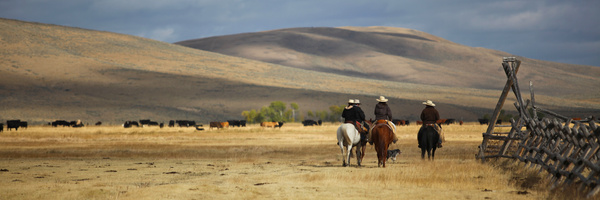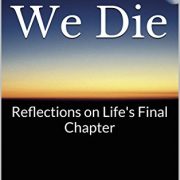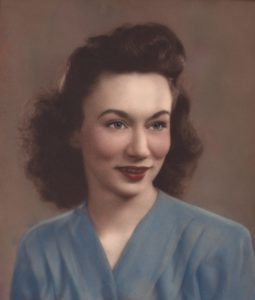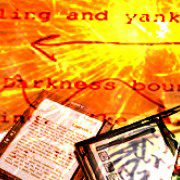Today it’s my pleasure to interview Ricki Wilson, an independent author and professional educator from Oklahoma. Growing up among genuine cowboys, Ricki learned at an early age to appreciate the true value of a good horse and a faithful dog. Maggie’s Fall, Wilson’s first novel, is a tribute to both. The Kindle Book Review describes Maggie’s Fall as “A true-to-life family saga set in the contemporary west that is both endearing and well written.”
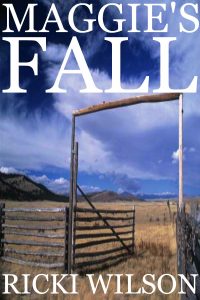 Hi Ricki. Thank you for being here today.
Hi Ricki. Thank you for being here today.
Thank you for inviting me. I’m honored.
It’s rare today to find an author who does nothing but write for a living. Do you have a day job other than writing, and if so, what is it? What are some other jobs you’ve had in your life? Have they influenced/inspired your writing?
I am a professional educator. I teach English in a public high school by day, and I teach Composition and American Literature in a local junior college in the evenings. I am currently teaching 5 days and 4 nights a week and spending my weekends grading and planning. This schedule is leaving me no time for writing, a situation I intend to rectify at the first opportunity. I love teaching, and I don’t want to give it up, but in my dream world, I would write full-time and teach part-time.
What compelled you to write your first book?
Some people paint, some crochet, or bake, or play golf; I write—often for the same reasons that I read, to escape, to discover something beyond my physical world. Writing Maggie’s Fall began as an experiment to see if I could create the reading experience from the other side, to see if I could record a story as I was imagining it. The process was arduous and exhilarating in equal measure. Following the age-old adage to “write what you know,” I chose familiar subjects (stray dogs, horses, and cowboys) and wove them into a story.
I loved Maggie’s Fall. The characters are so sympathetic and true to life, and life on a horse ranch is shown so memorably. Tell us briefly about your book.
Maggie’s Fall is about Maggie McClellan, a single and single-minded woman whose sole purpose in life is to protect the M-Bar Ranch and the M-Bar Ranch family: her son, T.J., Martha and Jonah (who have lived on the ranch as long as Maggie), the M-Bar horses, and one stray dog who knows all Maggie’s sorrows.
Maggie is smart. She knows how to run a ranch and how to keep her guests happy; she knows when to stay out of Martha’s kitchen and not to leave Jonah’s tools lying around; she knows how to soothe a frightened colt, and that T.J. worries too much for a little boy, but she doesn’t know how to stop an anonymous investor from buying out her leases. Maggie will not lose everything her parents built. Saving the M-Bar is the only way to keep her parents’ memory alive. When the pressure of holding everything together weighs too heavily, Maggie breaks a long-standing rule: she rides off alone across the M-Bar pastures without telling anyone where she’s going.
Witt McCreigh has been Maggie’s best friend her whole life. When Maggie never returns to the ranch, Witt saddles Maggie’s best mare, abandons the formal search party, and follows his heart. Witt rides with one hope—to find Maggie alive, and one regret—that he has never told her how much he loves her.
What are you working on at the moment?
I am working on the sequel to Maggie’s Fall when I can make the time to write. Around mid-summer, I thought I was close to being finished, but when I stopped to re-read, I realized that I had not put my best voice on paper. I trashed 201 pages and started over. I would rather delay publication of the sequel than insult readers with a mediocre effort.
Do you have a favorite character? Why is s/he your favorite?
I do not have a favorite character from Maggie’s Fall; I love them all. However, I do have a least favorite character, Bronc Weller. It’s a very odd feeling to create a despicable character, but I had fun doing so.
If you could live in one of your books, which one would you live in?
There are elements of Maggie’s Fall that I would like to experience, such as the warmer winters of West Texas, or having the opportunity to be around my horses all the time. I guess I do create settings that hold appeal for me. I have two novels in their infancy. Once centers around the drag racing scene and the other is set in a farming community. I have a weakness for old hot rods, so that would be fun, and I already live in a small farming community, so I know the joys of small-town life firsthand.
The main characters of your stories—do you find that you put a little of yourself into each of them or do you create them to be completely different from you?
I’m sure this will seem like an odd answer, but I don’t feel as if there is any part of me in my writing. Other than being the writer, I simply don’t factor in. I am an omniscient writer, in that I watch the story play out and I record what I imagine, but I do not play a part in the story. I’m always hopeful that I’ll find a way to better explain this.
When growing up, did you have a favorite author, book series, or book?
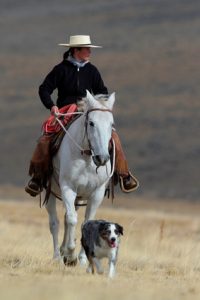 The first “big book” that I remember reading was Anna Sewell’s Black Beauty. If memory serves, I was in the second grade. I still have the book. I have always been an avid reader. In elementary school I read Trixie Belden, Nancy Drew, The Black Stallion series—one of my favorites was Cinchfoot (another horse story). I read Gone with the Wind in the sixth grade. I’m sure I didn’t grasp it, but I remember the feeling of being swept away in the saga. I discovered Vonnegut in high school, and I was blown away.
The first “big book” that I remember reading was Anna Sewell’s Black Beauty. If memory serves, I was in the second grade. I still have the book. I have always been an avid reader. In elementary school I read Trixie Belden, Nancy Drew, The Black Stallion series—one of my favorites was Cinchfoot (another horse story). I read Gone with the Wind in the sixth grade. I’m sure I didn’t grasp it, but I remember the feeling of being swept away in the saga. I discovered Vonnegut in high school, and I was blown away.
What about now: who is your favorite author and what is your favorite genre to read?
Discovering the literary canon fueled my addiction for words. I can now barely read anything without a pen in my hand for recording quick annotations (I love the “notes” feature on e-readers.), and, for me, The Great Gatsby is the finest novel in existence.
My reading tastes have become far more eclectic in recent years, and I try to divide my reading time between pleasure reading and literary fiction. Because I began Maggie’s Fall as a pleasure writing experience, I wrote it to be in the pleasure reading category; however, I would love to attempt a work of literary fiction one day.
It’s always difficult for me to choose one favorite (with the exception of Gatsby), but literary works I treasure include Kingsolver’s The Poisonwood Bible, Steinbeck’s East of Eden, Martel’s Life of Pi, O’Brien’s The Things They Carried, and, more recently, Amor Towles’ Rules of Civility and Jeffrey Eugenides’ The Marriage Plot.
On the other side of the fiction coin, I’ll read just about anything (except blatant erotica). I often read a book at a student’s request (The Book Thief, The Perks of Being a Wallflower) or a friend’s recommendation (Stephanie Plum), but lately I’ve been finding some great reads through my Indie Author connections. Your work, Talion, is at the top of my list, along with the John Reeves novels by Kirkus MacGowan, the Olivia Hart series by Alana Siegel, LiaFairchild’s In Search of Lucy, and one book I really liked that’s not getting much notice is Stephen Shea’s The Not So Simple Life. I have no shame in admitting that I practically inhaled the Twilight series, and while I’m neither Team Jacob nor Team Edward, I am most definitely Team Stephenie. I had students in my classroom who had previously read nothing longer than a Facebook status and they were devouring the series. For that, I say “Thank you, Ms. Meyer!” In writing these lists, I fear that I’ve been disloyal in my forgetfulness. I have a list of books on Goodreads .
What advice would you give aspiring authors?
I would advise those who aspire to publish to be avid readers, to educate themselves about the current and ever-changing trends in the publishing field, and to prepare themselves for the reality that the writing is the easiest part. A year ago I never would have dreamed that I would have to build a dedicated Facebook page, that I would need to be on Twitter, that I would need to develop a website — all for the purposes of promoting Maggie’s Fall and making contacts. I am no good at self-promotion, and I don’t enjoy it, but it hasn’t been all bad. Indie authors are extremely generous in helping one another, and, thanks to social networking, I’ve been helped along my way by those more experienced. Because I abhor promoting myself, I choose to promote my fellow Indie authors through my blog, Indie Spotlight.
Where can readers buy Maggie’s Fall and connect with you online?
Maggie’s Fall is available for Kindle, Kindle apps, and in paperback from Amazon and Amazon UK.
Maggie’s Fall is also available from: Barnes and Noble, Smashwords, and iTunes.
I welcome readers and fellow authors to join me on Facebook and Twitter.
My website celebrates Maggie’s Fall, and my blog, Indie Spotlight features Indie Authors. Any author who would like to be showcased can find the details on my website.
